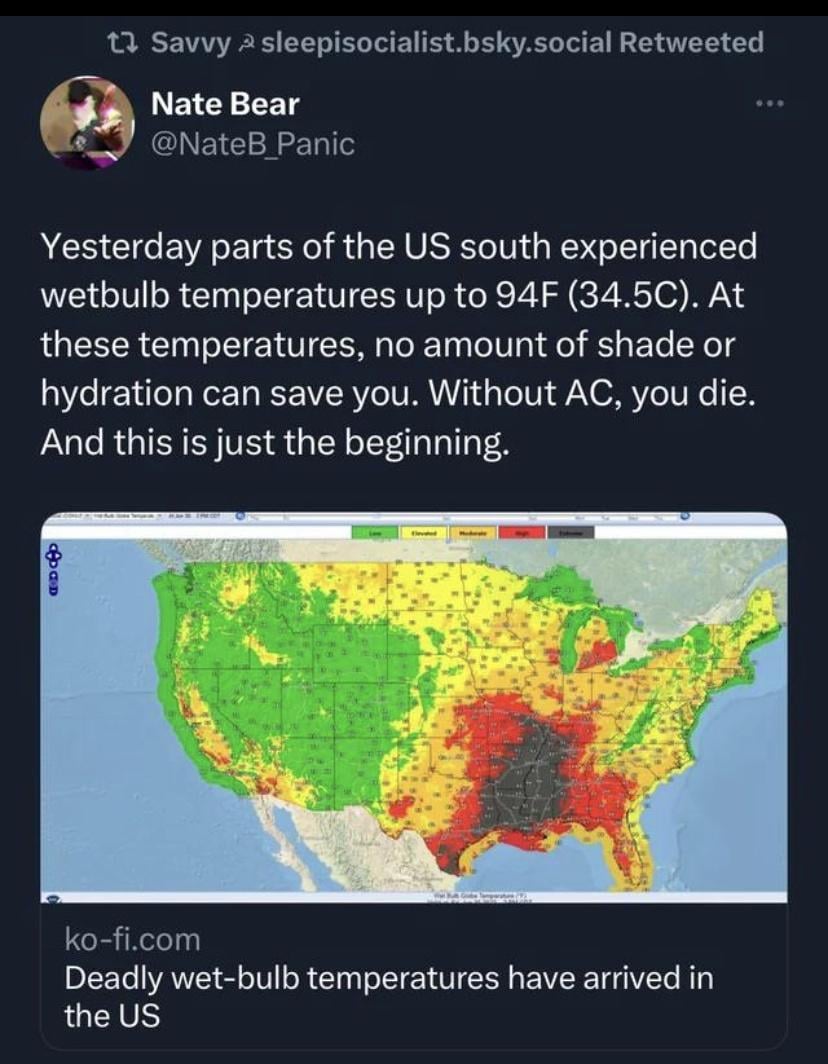this post was submitted on 03 Jul 2023
35 points (77.8% liked)
Prepper Forum
580 readers
1 users here now
Discsussions about prepping and preparedness, including disasters, prepping communities, sustainability, situational awareness, supplies, skills, gear. This is a forum about knowledge sharing.
founded 2 years ago
MODERATORS
you are viewing a single comment's thread
view the rest of the comments
view the rest of the comments

We went over 35 in the UK last year and very few people have AC here, don't know of anyone who died.
It was also very dry. The hottest day in the UK last year was 19th of July at around 40C and 25% humidity, that puts the wet bulb temperature at 25C. The idea is that with such dry air your sweat evaporates and cools you down. If the humidity had been much higher, people might have died.
Many people, old people in particular, die every year due to heat, even at comparatively low temperatures. For example, the UK government estimates that there were around 2500 heat-related deaths in 2020, about 1600 in 2021, and almost 3000 in 2022 (see also here). The UK government defines "heat-periods" as "any day on which a Level 3 HHA was issued in at least one region or the mean central England temperature (CET) was at least 20°C". And like @[email protected] said, the wet-bulb temperatures during these periods were all far below 35°.
I would assume that periods with wet-bulb temperatures of 34.5 °C (keep in mind that the corresponding maximum air temperature is probably still quite a bit higher) easily fall under the UK's definition of heat, and that people (old ones in particular) would be at serious risk of dying if they were exposed to those temperatures for longer, i.e. without access to AC. And even people with access to AC need to occasionally go outside to run errands and the like, so I wouldn't be surprised if this heat wave will be visible in the mortality rates of the region. And rising temperatures due to the climate crisis will only make heat waves (both with and without extremely high wet-bulb temperatures) more common (see e.g. on wikipedia).